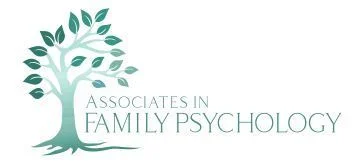Anxiety Treatment in ,
What is Anxiety?
Everyone experiences anxiety as it's a normal reaction to stress. It can alert us to dangers and help us prepare and pay attention. However, when symptoms of anxiety become excessive, it can make everyday tasks much more difficult. The good news is that there are very effective treatments for anxiety disorders. Some common types of anxiety disorders are:

* Generalized Anxiety Disorder
* Social Anxiety Disorder
* Simple and Specific Phobias
* Panic Disorder
* Agoraphobia (fear of leaving safe spaces)
* Separation Anxiety Disorder
What types of treatment do psychologists use to treat Anxiety?
It's important to note that the effectiveness of therapy can vary depending on the individual and the specific type of anxiety disorder. A combination of therapies or a tailored approach may be necessary to address each person's unique needs. It's best to work with a qualified psychologist or mental health professional to determine the most appropriate treatment plan.
Anxiety Disorders can be treated with the following therapeutic approaches:
- Cognitive Behavioral Therapy (CBT): This is a type of therapy that focuses on changing negative thought patterns and behaviors associated with anxiety. It helps individuals learn coping strategies and develop skills to manage their symptoms.
- Exposure Therapy: This involves gradually exposing individuals to the situations or objects that trigger their anxiety in a safe and controlled environment. Over time, repeated exposure helps reduce the fear response.
- Acceptance and Commitment Therapy (ACT): ACT combines mindfulness techniques with acceptance of one's thoughts and feelings. It helps individuals learn to accept their anxiety and commit to actions that align with their values.
- Mindfulness-Based Stress Reduction (MBSR): This involves mindfulness meditation and other mindfulness practices to cultivate awareness of the present moment and reduce stress and anxiety.
- Dialectical Behavior Therapy (DBT): Originally developed for treating borderline personality disorder, DBT includes skills training in areas such as mindfulness, emotion regulation, distress tolerance, and interpersonal effectiveness, which can be helpful for managing anxiety.
- Medication: In some cases, medication such as antidepressants or anti-anxiety medications may be prescribed by your physician or psychiatrist to help alleviate symptoms. These are often used in conjunction with therapy.
- Relaxation Techniques: Techniques such as deep breathing, progressive muscle relaxation, and guided imagery can help individuals relax and reduce anxiety symptoms.
- EMDR: Some people may find EMDR helpful for treating certain aspects of their anxiety.
It's best to work with a qualified psychologist or mental health professional to determine the most appropriate treatment plan for you.

